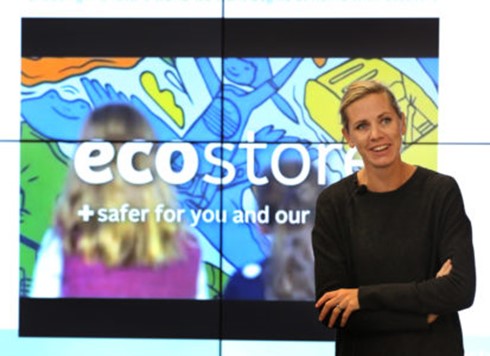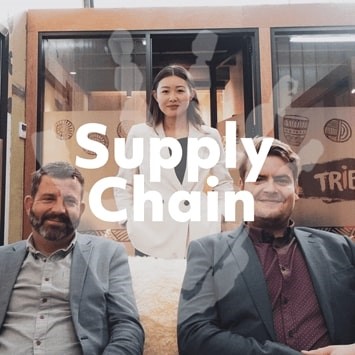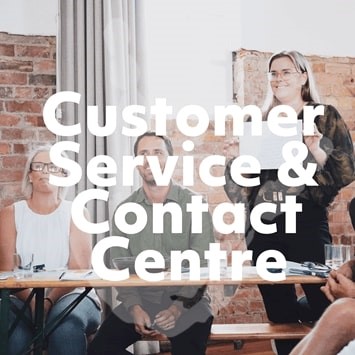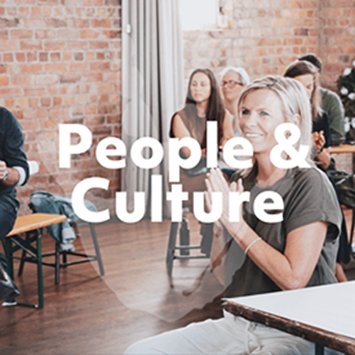When it comes to creating products that are better for us and better for the planet, ecostore have always been ahead of the curve. Talking to Jemma Whiten, Director of Marketing & Digital - we discuss the changes in consumer values, and their power to impact change.
As a company that was born with sustainability at the forefront of your practices, can you tell us a little bit about your journey and the progressions you’ve made to continue to live up to this?
Sustainability is in our DNA – it really is what we have always been about. In many ways we were ahead of our times. What is great to see is the speed of change right now with consumers. In a Colmar Brunton study 42% of consumers said that they are committed to leading a sustainable lifestyle – so it’s now a great time to be a business in the sustainability space.
We are conscious of not simply trading on a reputation as a sustainable pioneer. To be a responsible business means moving forwards. We’re constantly looking at our product formulations, our packaging, and how we source and manufacture to find ways we can improve across all aspects of the business. We ensure our products are safest for people and the planet. And with our packaging we use a mix of sugar plastic (sustainable and renewable) and recycled plastic. In 2019 we also joined the Climate Leaders Coalition, signed the New Zealand plastic packaging declaration and committed to reporting on our sustainability progress every two years. We are also about to launch a very exciting project around our packaging. Watch this space.
What does it mean to run a sustainable business?
For ecostore it means setting an example for other businesses to follow and making it easier for people to choose a safer option. It’s about seeing the huge challenges we face in the 21st century as opportunities to do better – and build a brand and a business that we and our customers can be really proud of.
You made the change to using plastic made from sugarcane for your packaging, a renewable source that is also 100% recyclable. Why do you think it’s important to be open to making big changes like this, despite the effort and cost?
Most plastic is made from non-renewable petrochemicals in a process that releases carbon into the atmosphere. So, almost a decade ago we challenged ourselves to find a packaging alternative that’s safer for our planet. We chose sugar plastic because it’s from a renewable source, and actually removes carbon from the atmosphere as it grows. It’s also kerbside recyclable. Meanwhile, we’ve made refilling available in 70+ refill stations around New Zealand (with more planned). Moving to sugar plastic has saved more than 4,485 tonnes (and counting) of carbon from being released into the air. Basically, despite the cost and time it took to switch to sugar plastic – we just believe it’s the right thing to do.
As focus on climate change increases, have you seen a shift in customer expectation?
Climate change is a massive challenge, requiring huge collective action at all levels of the world’s societies, governments and economies. But people also want to take action on a personal level. So as consumers become more aware of climate change, they’re expecting brands to keep up and make it easier for them to make better choices. I think this is a good thing, as consumer demand is a really powerful impetus for companies to change! We are also seeing consumers using their power as voters and activists to ensure governments create legislation and regulation that supports this change. In fact, countries that have signed the Paris Agreement have committed to make sure that financial flows support the development of low-carbon and climate-resilient economies.
What misconceptions do you think there are to being a business that puts sustainability as a top value?
I think there has traditionally been a perception that ‘green’ products compromise on effectiveness or design. We’re really focused on continually improving our safer product formulas, so they’re as effective as the market leading brands, and that our customers have a great experience using them. And I think as we see the rise of global brands like Tesla, and local ones like Kōkako – consumers are more and more equating sustainability with quality.
For businesses looking to make a change and decrease their impact on the environment what are some actionable tips they can take?
I suggest that those businesses look at where their impact is greatest and start there. Determine where they can affect the most change. For example, as a company that makes FMCG products, it’s essential for us to make our packaging as sustainable as possible, while also developing new models that reduce the amount of packaging we and our customers use. No business is perfect, and we are still on our own journey. But taking a journey means constantly looking for ways to move forward and act. There’s always more to do!






